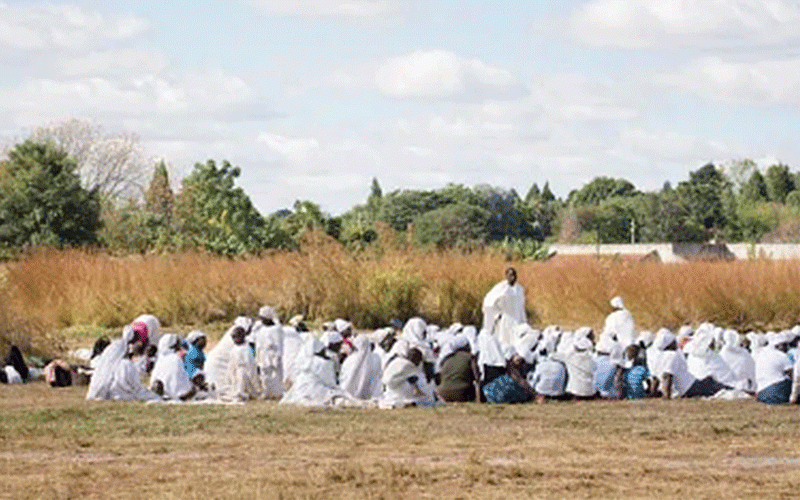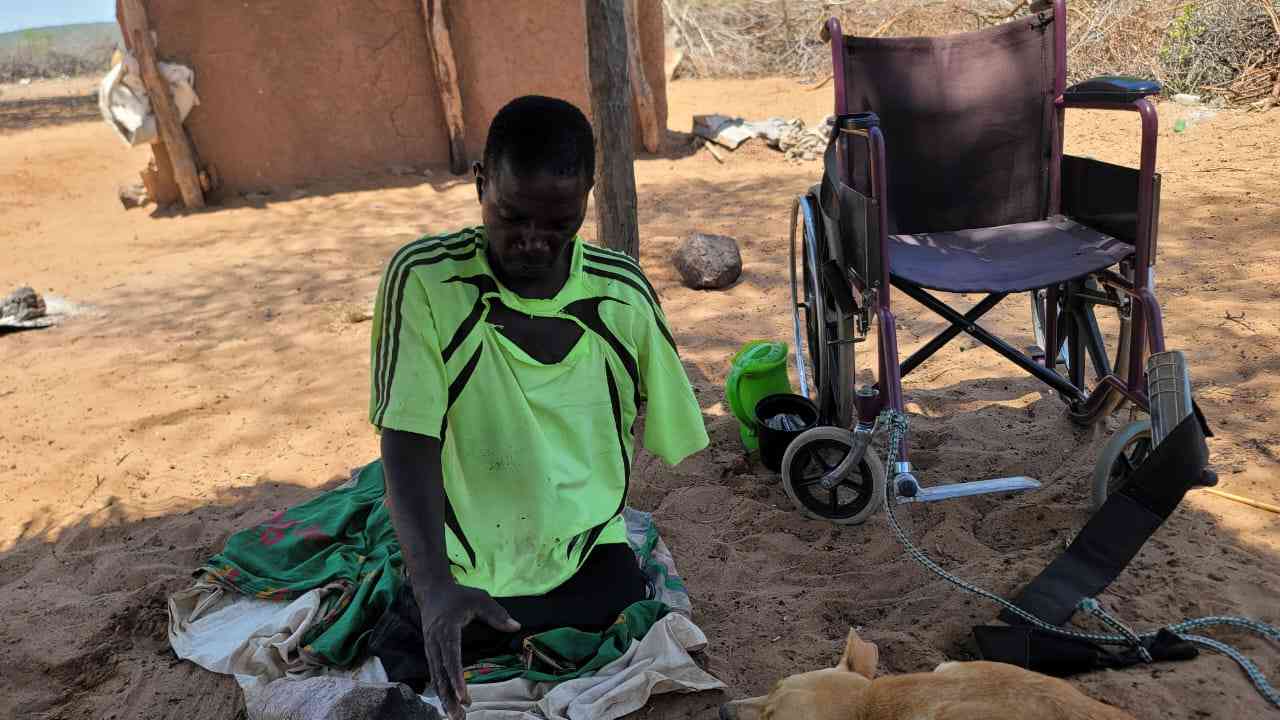
IN a secluded, dimly lit room at a rural public health clinic in Mashonaland West province, Makanaka, a 23-year-old heavily pregnant woman, sits quietly, her eyes scanning the door nervously.
She’s among thousands of apostolic sect members — commonly referred to as vapostori — whose faith prohibits them from seeking medical attention.
Yet here she is, in direct violation of her doctrine, hoping to get vital antenatal services that could save her life and that of her unborn child.
“I am not supposed to be here,” she whispers, her hands trembling slightly as they rest on her swollen belly.
“In my church, we believe that prayer can heal and protect us, even during childbirth. But this is my third pregnancy. The first two babies died during labour.
“I don’t want to lose another child. I need help, but I must make sure no one from the church finds out.”
Under the cover of darkness, another pregnant woman, Ruvimbo, a devout follower of the Johanne Marange apostolic sect, quietly slips out of her home.
Her destination is not the church shrine for prayers or spiritual healing, but the antenatal ward at St Mary’s Clinic in Chitungwiza.
- Over 115 to exhibit at Mine Entra
- Young entrepreneur dreams big
- Econet bemoans power outages
- Govt opens ChiTown e-passport centre
Keep Reading
This clandestine journey, fraught with fear, stigma and the weight of unspoken guilt, reveals a stark contrast between religious conviction and the fundamental need for maternal and child health.
This visit is not just about ensuring her baby’s well-being — it’s a delicate balancing act between maintaining her faith and securing the medical care she desperately needs.
“Even though the church tells us that we should not seek medical help, I fear for my child,” reveals Ruvimbo.
“I have already lost a child during childbirth because I followed what the church leaders instructed. This time, I can’t take that risk.”
The apostolic sect, a Christian religious group with a large following in Zimbabwe, especially in rural and peri-urban areas, has long been averse to conventional medicine.
Its strict interpretation of religious texts dictates that faith alone should guide the lives of believers, which includes reliance on prayer and spiritual healing for health matters.
Followers are taught that seeking medical help is a sign of weak faith and a lack of trust in God’s ability to heal.
Consequently, women in these sects are often discouraged or outrightly forbidden from accessing antenatal care and medical assistance during childbirth.
For pregnant women like Ruvimbo, the consequences of adhering to this doctrine can be dire.
Zimbabwe’s maternal mortality rate stands at 458 deaths per 100 000 live births, according to the World Health Organisation (WHO) and experts point to the reluctance of apostolic sect members to seek medical help as a major contributory factor to these numbers.
Complications during pregnancy and childbirth are the leading cause of death for women of childbearing age in Africa, according to the United Nations Population Fund.
Girls aged 15 to 20 are twice as likely to die during childbirth as those in their twenties.
Many women end up giving birth at birth camps dotted across shrines under unsafe conditions and the care of untrained midwives, further raising the risk of complications.
Conditions at apostolic birth camps are often unsanitary and birth attendants lack the training and medical equipment to deal with childbirth complications such as excessive bleeding, infection, high blood pressure, cord prolapse, prolonged labour and breech presentation, which can put the lives of the mother and baby at risk.
“I know so many women who suffered complications during delivery because they gave birth at birth camps,” says Martha, another apostolic woman, who also sneaks out for antenatal services at a clinic in Harare.
“My sister almost died when her baby was stuck and there was no one to help. She only survived because our neighbour called a nurse, but by the time help arrived, the baby was dead.”
Despite the risks associated with defying their church’s teachings, an increasing number of women from apostolic sects is beginning to seek antenatal care — albeit in secrecy.
Nurses at local clinics and hospitals are well aware of the clandestine visits.
In conversations with healthcare workers, it becomes clear that these women often go to great lengths to disguise their visits to clinics, some even taking measures as drastic as using pseudonyms and scheduling their check-ups during off-peak hours to avoid being seen by fellow sect members.
“We understand the challenges these women face,” says Mercy Kapodogo, a nurse at a local maternity hospital.
“Many of them come to us in secrecy, afraid of what their church might do. We do our best to provide them with the care they need, while also respecting their religious beliefs.”
The apostolic women are not only seeking antennal services but they are also having their children vaccinated.
With financial support from the United Nations Central Emergency Response Fund, Unicef and its partners engaged hesitant communities such as the apostolic sect to build their trust in antenatal services, vaccination and appreciate the health benefits of vaccinating children.
In partnership with Apostolic Women Empowerment Trust, Unicef collaborated with the Health and Child Care ministry to increase awareness and build trust among the communities on vaccination and antenatal services.
Public health expert Mlungisi Ndebele emphasises the need for a multi-faceted approach to addressing the healthcare needs of pregnant vapostori women.
“We must engage religious leaders, healthcare providers and community members to promote understanding and acceptance of modern healthcare practices,” he says.
The Health and Child Care ministry has also taken steps to improve access to healthcare for marginalised communities, including vapostori women.
Health and Child Care minister Douglas Mombeshora said the government had been working to increase the number of health facilities in rural areas, as well as to provide training to healthcare providers on how to deliver culturally sensitive care.
“We recognise the importance of providing accessible and culturally appropriate healthcare to all citizens,” he says.
“We are committed to working with religious leaders and community organisations to address the specific needs of vapostori women.”










